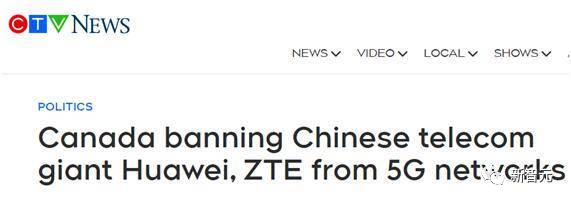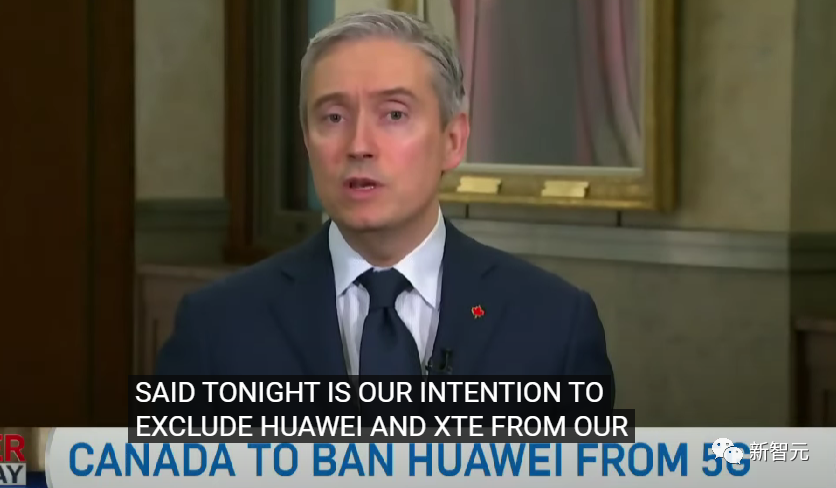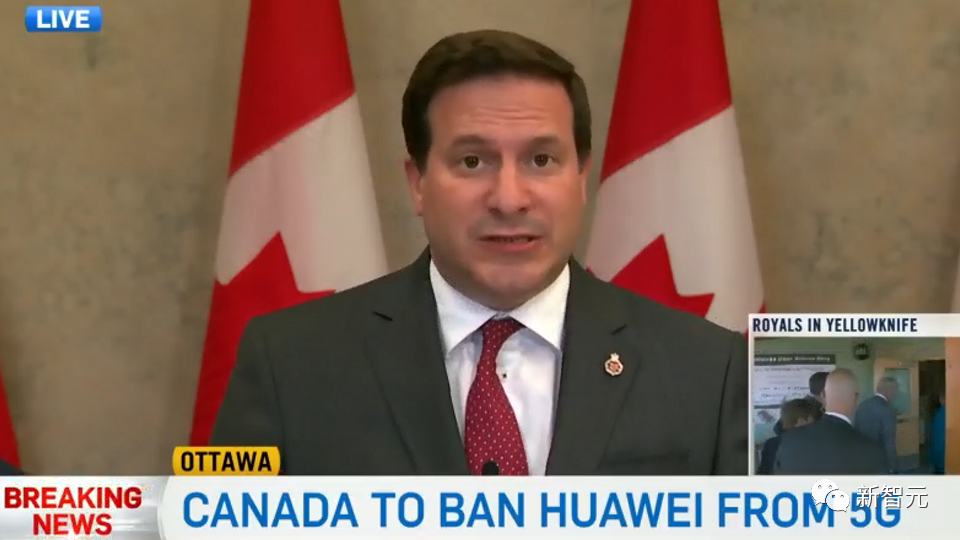just! Canadian officials announce ban on Huawei and ZTE 5G equipment, saying they threaten 'national security'

Just now, the Canadian government announced a ban on the use of Huawei 5G communications.

Francois-Philippe Champagne, Canada's minister of innovation, science and industry, said Huawei posed a threat to its national security.

In addition to the ban, Public Safety Canada Minister Marco Mendicino said a piece of legislation would be tabled "in a very short time."

It is reported that the new legislation is an amendment to the Telecommunications Act to support Canada's telecommunications system against national security risks such as finance, telecommunications, energy and transportation.
Also banned is ZTE, which will be decommissioned and dismantled if it has been installed.
Ban + decree double sanction
According to local media reports, the Canadian government issued this "policy statement" mainly based on comprehensive considerations.
Canada claims that 5G will bring massively enhanced data capacity that will connect billions of devices and will serve as the foundation for other technologies, the digital economy and critical infrastructure, so Canada needs to keep it safe.
Canada has determined that Huawei and ZTE complied with extrajudicial instructions from foreign governments in a manner that violated Canadian law or violated Canadian interests.
Given international supply chain dynamics and concerns from allies, Canada said it was increasingly difficult to deal with testing of network equipment by potential suppliers.
The specific timeline of this ban is roughly as follows:
Stop purchasing new 4G or 5G equipment and services from Huawei and ZTE until September 2022.
Stop using any new or existing 5G equipment and services from Huawei and ZTE until June 2024.
Stop using any new or existing 4G equipment and services from Huawei and ZTE until December 2027.
In an interview with Canadian mainstream media CTV, Canada's Minister of Innovation, Science and Industry Champagne clarified the ban, saying, "Think about the Internet of Things, think about self-driving cars, we all know the decentralized nature of network connectivity, and we need to protect our network of".
Mendicino, Minister of Public Safety Canada, revealed the new legislation, saying: "This new legislation will create a framework to better protect systems that are critical to our national security and provide the government with a new tool to to address emerging cyber threats.”
The announcement of the new legislation follows a series of government investigations, which Mendicino said "were meticulous and conducted with all the due diligence necessary to protect our national security."
Mendicino said: "The transition to 5G will bring faster speeds and better connectivity, however, according to the federal government, the attendant concern is that malicious actors exploiting vulnerabilities will be more difficult to guard against and these incidents will have a wider impact than previous generations of wireless technology.”
"In the 21st century, cybersecurity is national security, and from cyberattacks to electronic espionage to ransomware, Canadians face greater threats than ever before, and we will protect them," Mendicino said.
"In this context, we must ensure the security of Canada's telecommunications system," Mendicino said.
It is understood that the decision was made after consultations between Canada and its "ally" and that Canada's decision came later than expected.
The Five Eyes alliance, an intelligence-sharing alliance that includes the United States, Canada, the United Kingdom, Australia and New Zealand, has banned the equipment in other countries.
China: Serious generalization of the concept of "national security"
In response to Canada's ban on Huawei from participating in the construction of 5G networks, yesterday, the spokesperson of the Chinese Embassy in Canada responded, expressing China's attitude.

The spokesperson of the Chinese embassy in Canada said, "On May 19, the Canadian government announced a ban on the use of Huawei and ZTE's products and services in Canada's telecommunications system on the grounds of so-called national security. The decision made after friendly consultations. China expresses serious concern and strong dissatisfaction with this.”
A spokesman for the Chinese embassy in Canada said: "The Chinese government has always required Chinese companies to conduct foreign economic cooperation on the basis of abiding by international rules and local laws. Huawei and ZTE have always maintained very good cyber security records. The Canadian side has no conclusive evidence. The following decision to exclude relevant Chinese companies from the Canadian market on the grounds of so-called national security seriously generalizes the concept of national security, violates the principles of market economy and free trade rules, and damages the legitimate rights and interests of Chinese companies. We negotiated with our allies, and to put it bluntly, we wanted to cooperate with the United States in suppressing Chinese companies. The Canadian side's so-called "security" concerns are just a cover for political manipulation. "
The Chinese embassy in Canada said in a statement, "I want to stress that the above-mentioned erroneous actions of the Canadian side will definitely damage Canada's international image and self-interest. The Chinese side will comprehensively and seriously evaluate this incident and take all necessary measures to safeguard the legitimate rights and interests of Chinese companies. ”
To this end, Alykhan Velshi, head of Huawei Canada, said that "the company is clearly disappointed by this move".

"The so-called 'ban' is really only targeting a small and declining part of our business in Canada," he said.
"The tech giant will carefully analyze the upcoming legislation to ensure it adheres to the Canada-China Foreign Investment Protection Agreement, but at least in the short term, Huawei will still have a role in Canada's telecommunications network," Velshi said.
"Yes, even its 5G network, because we are currently deploying the software with our telecom partners," Velshi added.
Velshi said, “Currently, Huawei has 1,500 employees in Canada, mainly engaged in research and development, and sells products such as mobile phones.”